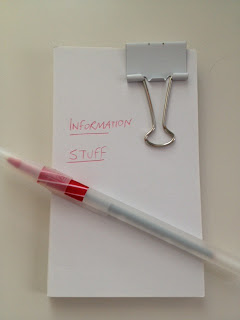When using flashcards to retain information, it is easy to overestimate how much information you can store in a single flashcard. This mistake is often made when it comes to languages (There is also a great deal of debate in regards to this). What strategy seems new and exciting in the beginning eventually becomes tiresome months and months down the line (And your flashcards are no longer interesting because they are no longer new).
One principle to keep in mind is that a single flashcard should only deal with a single unit of knowledge. Thus, instead of having a flashcard that asks "Who was Albert Einstein?", the questions should be "In what year was Albert Einstein born? When did he articulate the theory of relativity? In what year did Albert Einstein die? etc."
If you have spent any time making flashcards, you have no doubt encountered this principle in some way. While not overloading a single flashcard with too much information seems obvious when it comes to factual information, this seems to be neglected greatly when it comes to learning languages.
For example, if you were going to learn a Japanese character, often this kind of flashcard is made:
Q: 空
A: Sky, empty; そら、クウ
So when looking at "空," what are you supposed to recall? The meaning of the character? One of the many pronunciations? Which pronunciation? Let's say you recall the meaning of the character the first time you review it, but the second time you recall one of the character readings? The algorithm is only supposed to work with a single, unchanging memory, but the flashcard allows for many different memories to make it qualify as "correct."
In other words, one flashcard is trying to do the job of three or four flashcards. Instead of structuring a flashcard in such a broad and ambiguous way, the more effective thing to do would be to create a few highly focused flashcards such as these:
Q: Write the Japanese character for "Sky" or "empty."
A: 空
Q: How do you pronounce this character when it is with other characters (ON yomi)? 空
A: クウ
Q: How do you pronounce this character when it is by itself (KUN yomi)? 空
A: そら
There are many different ways of pronouncing this single character, and this does not reflect what I believe to be an effective character learning strategy. BUT you can see that dividing and focusing on single knowledge units rather than a bunch of knowledge units at a time will result in more accurate records for your flashcard software. This will result in your long-term retention of knowledge.
A flashcard is a sniper, not a shotgun.



